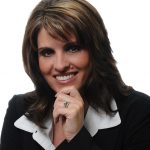In the 1970s, women business owners were isolated. Men went to their rotary club meetings to exchange roadblocks and business solutions; they got a jumpstart on business opportunities from some buddies seated next to them when they met at their local chamber. Unfortunately, in those days, neither of these organizations even allowed women to join. As a result, women took it upon themselves to start their own business organization, the National Association of Women Business Owners (NAWBO). Then, in the late 1980s, these same women stood on the steps of the U.S. Capitol asking for parity in business. But, this mission was more than simply joining forces to discuss how to solve business problems, NAWBO members were bringing solutions to members of Congress to enact change.
Thirty years ago, the business environment for women was in turmoil. In many states, women who wanted to start a business had to have a son or male relative co-sign their business loan, and the research that was coming out of the federal government was underrepresenting the impact these women were playing in our national economy. Through intense lobbying, strategic communication and grassroots political action, these women worked tirelessly with members of Congress to make lasting change for women entrepreneurs. In the end, their work transformed the business landscape for women and led to The Women’s Business Ownership Act, appropriately numbered H.R. 5050. 2018 marks the 30th anniversary for this pivotal piece of legislation on behalf American women in business.
When I started my business more than 10 years ago, an SBA 7(a) Loan and a 504 Loan — neither cosigned by a male relative—allowed me to jumpstart my business and provided an opportunity for me to build a trusting relationship with my bank. Without the forethought of the women before me, it may have taken me years to see the profits of my hard work. Instead, their efforts led to streamlined lending across our nation allowing me to grow my business approximately 30 percent year after year. Today, H.R. 5050’s impacts are tangible and seen in our day-to-day work. We appreciate the monumental change this piece of legislation brought to our business community, but we also recognize there is more work to be done, not only on a national level, but also, on an international level.
This April women from across the globe gathered together, not on the steps of our nation’s capital, but in New York City. NAWBO hosted the Femmes Chefs d’Entreprises (FCEM) World Summit. This platform will be the catalyst for international change on behalf of women business owners. Women of all different nationalities discussed how to expand global entrepreneurship for women, and two of the women that stood on the steps of the Capitol, 30 years ago, asking for change told their important story. Virginia Littlejohn and Dr. Terry Neese regaled us with the stories of their valiant efforts to get H.R. 5050 across the finish line, but also gave us some ideas to improve the path for female entrepreneurship in the years to come. By bringing NAWBO members as well as FCEM members together, our efforts transcended international borders. We already know there are areas for improvement in America, but we can learn from global partners as well.
While I received a loan to start my business, many American women still struggle with access to capital. Despite uniform lending practices, statistics show that only 4 percent of commercial loan dollars go to women-owned businesses. More than capital, our leaders need to change. According to Deloitte and the Alliance for Board Diversity, women and minorities occupied about 31 percent of Fortune 500 board seats in 2016. In addition, despite NAWBO’s efforts with research through H.R.5050, gaps in the research remain and without solid research policymakers do not have the tools necessary to help expand opportunities for women in business. If these are the uphill battles that female entrepreneurs face in America, we can only imagine the impediments women may be facing worldwide.
Bringing dynamic, smart, successful women together, we are confident we will leave this conference with solutions. Solutions that will support both the female farmer in rural Nicaragua to the fashion designer in Paris because both deserve our thought and consideration. Our fight for equality in America began many years ago, but our global fight for parity in business has only just begun. This conference is the start of a dialogue to find answers on how we can expand our economy worldwide. We know women are the answer, we know women are the untapped growing resource, and we know women are the solution to a sustainable global economy. But, just as we gave Congress solutions to write H.R. 5050, we need to give world leaders the framework to build a solid foundation for our international economy.
 Teresa Meares is chair of the NAWBO Institute for Entrepreneurial Development and Vice President of Femmes Chefs d’Enterprises Mondiales (FCEM). Meares is Chair of the NAWBO Institute for Entrepreneurial Development and Immediate Past Chair of NAWBO National. In 2017, she was also named Vice President of FCEM. As a woman business owner, Meares is President of DGG Uniform and Work Apparel, a distributor of business and uniform apparel. She also manages Audibelle, a clothing line for girls between the ages of 13-17, launched by her daughter, Kayla.
Teresa Meares is chair of the NAWBO Institute for Entrepreneurial Development and Vice President of Femmes Chefs d’Enterprises Mondiales (FCEM). Meares is Chair of the NAWBO Institute for Entrepreneurial Development and Immediate Past Chair of NAWBO National. In 2017, she was also named Vice President of FCEM. As a woman business owner, Meares is President of DGG Uniform and Work Apparel, a distributor of business and uniform apparel. She also manages Audibelle, a clothing line for girls between the ages of 13-17, launched by her daughter, Kayla.







Add Comment